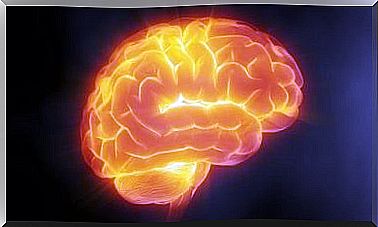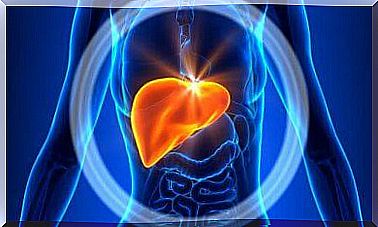A Late Period: Should I Be Concerned?

When you have a late period, the first thing that comes to mind is that you are pregnant. But that’s just one possibility.
In this article, we’ll tell you when to see your doctor or if you should be concerned if you’ve missed a period.
A late period does not necessarily mean you are pregnant
The theory dictates that a woman’s menstrual cycle lasts 28 days. This is how much time there should be between periods. However, the human body is not a robot or clock, so women can get their periods earlier or later.
The functioning of our body is linked to different systems, which work together like a well-oiled machine. Therefore, they must be in perfect condition for the menstrual cycle to last exactly four weeks. It is about this:
- the immune system
- the metabolism
- the circulatory system
- the hormonal system
- the neuroendocrine system
If you don’t get your period on time, you may feel worried, or even excited, because you could be pregnant. Pregnancy is the best-known cause of late periods, but it’s not the only one. Other factors can also influence the timing.
What are the main causes of a late menstrual period?
We’ll start with the factors that cause late periods that you don’t need to worry about. However, be careful that they do not repeat in the future.
Stress and Anxiety

Women today are under great pressure (at work and social level), which affects their health. While it’s “normal” for stress to alter the menstrual cycle, it’s not ideal.
You may experience something that changes your period. There are many causes that can directly affect hormone production:
- the fear before a wedding
- a journey
- a big move
- the stress of final exams
- obligations
- financial problems
In these cases, your period will be just a few days late or will come once you have solved your problem. It shouldn’t be a sign of other problems, but check with your gynecologist just in case.
Changes in body weight
You may notice changes in your period and delays if you have lost or gained a lot of weight. You should know that adipocytes (fat cells) play a role in hormone production and they can mess up your cycle.
Obese women produce more estrogen than normal and very thin women produce less. To solve this problem, you need to figure out how much you should weigh and strive to reach that goal.
To breastfeed

Women who have just given birth do not have their period again until a few months later. The body needs to return to normal after the drastic hormonal changes during pregnancy and postpartum.
Some mothers even start menstruating a year or more after giving birth. If this has happened to you, you should contact your doctor to find out what’s going on.
Stop taking the pill
If a woman takes the pill, her periods will be regular. However, if for some reason she stops taking these, her body has to go back to working naturally, meaning the ovaries have to work on their own.
This can delay her ovulation, and therefore her period. It is normal for this to happen once. However, you should see your doctor if you don’t get your period after a second month.
Causes of Late Periods That Require Medical Treatment

However, in some cases, a late period may be related to more serious health problems or require specific medical treatment. This does not mean that you should worry or think negatively. Instead, get professional help in solving a potential problem, as we describe below.
Infections and diseases
Some common illnesses such as influenza, cystitis, and tonsillitis can disrupt the menstrual cycle, especially if you take medications to treat them.
Thyroid Problems

An overactive or inactive thyroid can cause many imbalances, including late periods.
You should have a test to find out what treatment you need, such as: medications, iodine intake, or even removal of the gland.
Polycystic Ovarian Syndrome (PCOS)
PCOS is an endocrine system-related disease characterized by disturbances of the menstrual cycle and the formation of ovarian cysts. It can lead to infertility in complicated or untreated cases.
To treat this syndrome, doctors recommend living a healthier life and losing weight if necessary. Special hormonal preparations are also prescribed, depending on whether the woman wants to become pregnant in the future or not.
You don’t have to worry if your period is up to five days late because the human body is not that accurate. However, longer delays can be signs of a disorder or problem. If you’ve ruled out the ‘normal’ situations that can lead to menstrual changes, see your doctor.








